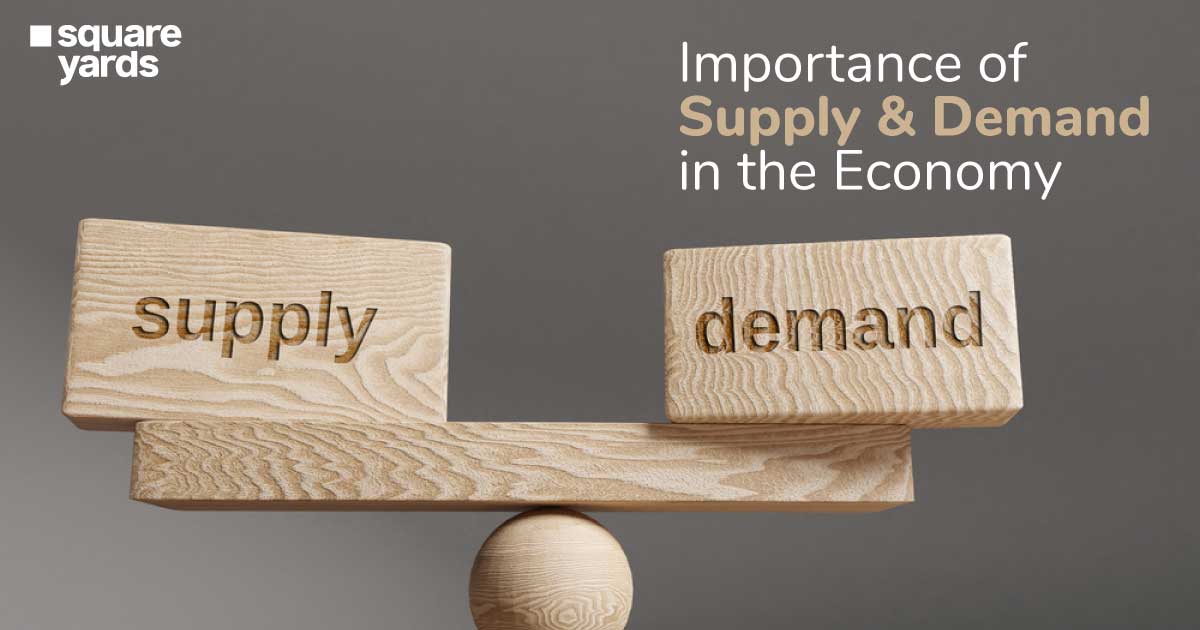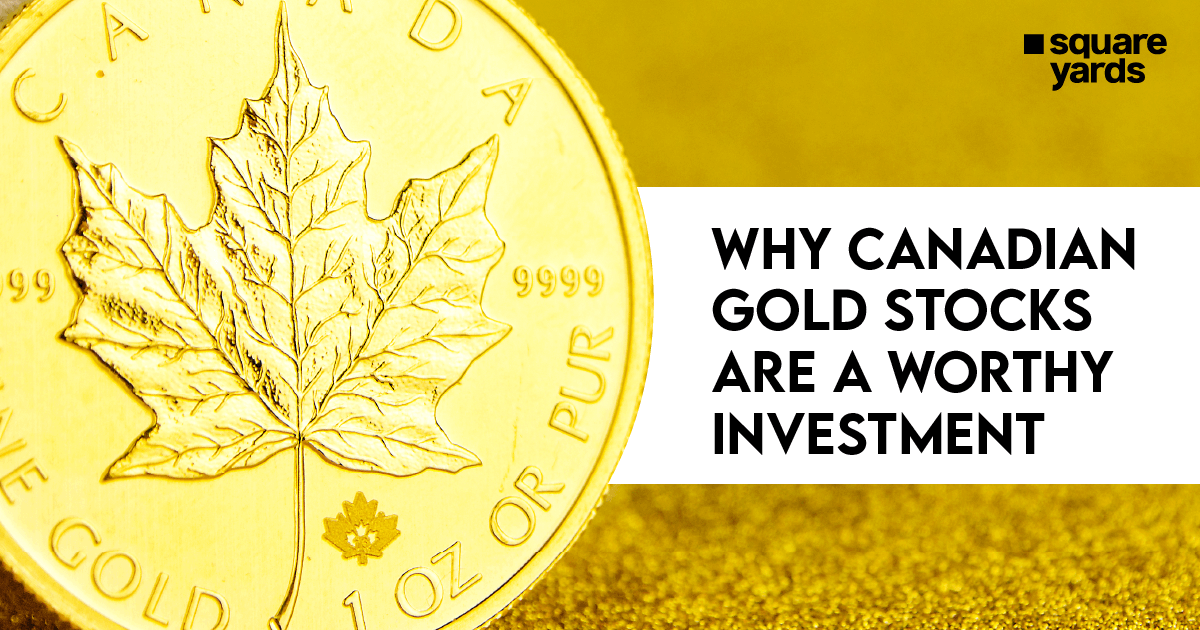Are you drawn to the appeal and reliability of gold stock in Canada? Purchasing gold in Canada can be a wise and profitable choice, regardless of whether you’re an experienced investor or just beginning your journey into asset preservation. With a long history, widespread acceptance, and the potential for long-term value growth, invest in gold stocks Canada has proven to be a lucrative option that offers stability in unstable economic environments.
In this guide, we will lead you through the procedure of how to buy gold in Canada, providing you with the in-depth information and insights you need to make a wise financial choice.
How to Buy Gold in Canada?
The top ways to buy gold in Canada involve the following:
-
Physical Gold
One way to invest in gold stocks Canada is by purchasing physical gold and storing it securely. By buying gold bars or coins, you become a direct owner of the physical asset, allowing you to benefit from its intrinsic value. Storing your gold in a safe and reputable facility ensures its protection and provides you with peace of mind.
-
Gold Stocks or Gold ETRs
Alternatively, investors seeking a direct investment in physical gold can turn to the Canadian Gold Reserves Exchange-Traded Receipt (ETR). Gold Stock Canada offers a secure, convenient, and cost-effective solution. One advantage of this approach is that you are relieved of the responsibility of storing and insuring the physical gold.
-
Trading Gold on the Financial Markets
Another option for investing in gold in Canada is trading gold on the financial markets as Contracts for Difference (CFDs). CFDs allow you to speculate on the price movements of gold without owning the physical metal. You can take benefit of both rising and falling gold prices through CFD trading platforms, potentially generating profits from market fluctuations. Each of these investment methods carries its own set of pros and cons. The choice ultimately depends on your investment goals, risk tolerance, and personal preferences.
Canadian Banks Selling Gold
Listed below are some of the central Canadian banks where you can conveniently purchase physical gold. Whether you prefer online or in-person transactions, these banks offer reliable options:
-
- Royal Bank of Canada (RBC)
- Toronto Dominion Bank (TD)
- Bank of Montreal (BMO)
- Canadian Imperial Bank of Commerce (CIBC)
- Scotiabank
When buying gold, most of these banks allow online purchases with a maximum limit of $10,000 worth of gold within a 24-hour period. However, Toronto Dominion Bank differs slightly, as their limit is set at $2,999.99. If you intend to purchase more significant amounts, you’ll need to visit the bank branch in person and provide two valid forms of identification.
After acquiring your gold, you have the option to store it either at the bank or personally. If you choose bank storage, it will be held in a custodial account at no additional cost. Keep in mind that your gold may not be kept separately from other holdings, although you will receive the quantity you purchased. If you prefer separate storage, the bank may charge an extra fee, which could be an annual charge, a flat fee, or a percentage of the gold’s value.
Regardless of where you store your gold, it is advisable to obtain insurance coverage. These banks offer insurance for the precious metals they sell. To determine the specifics of their insurance policy, it is recommended to inquire directly with your bank. Find out whether insurance is included or if there is an additional cost, as well as what precisely the coverage entails.
Taxation Process for Gold in Canada
The taxation process for gold is similar to that of any other commodity. Taxes are not levied on the ownership of gold itself but rather when it is bought or sold.
In Canada, the majority of precious metals bullion is exempt from the Goods and Services Tax (GST) or Harmonized Sales Tax (HST). This exemption applies to coins, bars, ingots, or wafers made of gold, silver, and platinum. To qualify for the exemption, these precious metals must meet specific criteria. Specifically, gold and platinum must be refined to a minimum purity level of 99.50%, while silver must have a minimum purity level of 99.9%.
Alternative Gold Buying Options Beyond Banks
If you prefer not to obtain your gold from a conventional bank or if you simply want to explore alternative options, there are other sources available for purchasing gold. However, if your intention is to acquire gold bars, commonly known as gold bullion, it is typically recommended to make the purchase through a bank.
On the other hand, if you are interested in buying gold coins, there are numerous places where you can find them, such as:
-
Pawnshops
These establishments may offer gold coins for sale, providing an opportunity for you to add them to your collection or investment portfolio.
-
Individual Sellers
You can also consider purchasing gold coins from individuals who are looking to sell their personal collections. This can be done through various platforms like online marketplaces, classified ads, or local coin clubs.
-
Private Dealers
Independent dealers specializing in precious metals and collectable coins can be another viable option. They often have a wide range of gold coins available for purchase.
-
Canada Post
The Canadian postal service, Canada Post, provides a unique avenue for buying gold coins. Some post offices offer a selection of coins for sale, making it a convenient option for customers.
-
The Royal Canadian Mint
As a reputable institution, the Royal Canadian Mint is an excellent place to purchase gold coins. They produce a variety of high-quality coins, including popular series and limited editions.
These alternative sources offer you more flexibility and potentially a more comprehensive selection when it comes to acquiring gold coins. It’s essential to conduct proper research, verify the authenticity of the coins, and consider factors such as pricing and reputation when purchasing from non-bank sources.
Does Jewelry Qualify as a Gold Investment?
Yes, jewellery can be considered a form of gold investment, but it’s important to understand the factors involved. While jewellery often contains gold, it is worth noting that you may end up paying more for the jewellery than the actual value of the gold it contains. This is because jewellery incorporates craftsmanship, design, and other factors contributing to its cost.
Additionally, gold jewellery is sometimes mixed with other alloys, making it less than pure gold. Therefore, it’s essential to verify the purity of the gold jewellery before considering it a pure investment in gold.
One reliable way to ensure the authenticity and quality of gold jewellery is to purchase it from a verified dealer registered with the Canadian Jewelry Association. These jewellers adhere to a code of conduct that emphasises honesty and transparency in the nature of their jewellery. By purchasing from such dealers, you can have more confidence in the purity and value of the gold jewellery you acquire.
Gold Stocks
If purchasing physical gold is not your preference, you might find investing in gold stock Canada to be an appealing alternative. This entails buying stocks from gold mining companies, which means you are investing in these companies rather than directly in gold itself. Numerous gold mining companies are listed on the Toronto Stock Exchange (TSX), offering a variety of options to choose from.
To invest in gold stocks or even ETFs (Exchange-Traded Funds), it is advisable to open a brokerage account. With a multitude of brokerage firms available, you have the flexibility to select one that suits your needs. These online brokerages often provide low-cost or even fee-free trading options, allowing you to manage your investment closely while keeping fees at a minimum.
However, it’s important to note that purchasing stocks in gold mining companies carries more risk compared to owning physical gold. This is due to the absence of physical assets, and while gold is generally considered a relatively stable investment, it still carries inherent risks. It is crucial to be aware that fluctuations in gold prices may impact gold mining stocks, but other factors also come into play.
If you are considering investing in gold stocks in Canada, several top gold mining companies are worth considering. While it is not possible to mention all of them, here are a few notable examples:
- Barrick Gold
- Agnico Eagle Mines Ltd.
- Kirkland Lake Gold
- Newmont Mining Corporation
- Franco Nevada Corporation
These companies represent a portion of the available options, and conducting thorough research and analysis is recommended before making any investment decisions.
Gold ETFs and Mutual Funds
Instead of directly investing in individual companies, you have the option to invest in ETFs, also known as electronically traded funds or mutual funds. This investment option allows you to invest in a bundled collection of shares. The specific ETF or mutual fund you choose will determine its focus, which could be tracking the gold price, stocks from multiple gold mines and refineries, or even the exposure to gold futures and options.
While numerous ETFs and mutual funds are available for investment, it’s impractical to list them all here. However, let’s explore some of the commonly mentioned ones:
- CIBC Precious Metals Fund
- iShares Gold Bullion ETF
- iShares S&P/TSX Global Gold Index ETF
- BMO Equal Weight Global Gold Index ETF
- BMO Precious Metals Fund
- TD Precious Metals Fund
NOTE: These are just a few examples, and there are many other options to consider.
Best Way to Invest in Gold
When it comes to investing in gold in Canada, the best approach depends on your investment amount and desired returns. One of the purest ways to invest in gold is through gold bullion bars. Although they can be more expensive, investing in gold bars allows you to choose the size of bars that suits your preferences. However, it’s important to ensure the authenticity and purity of the bars by purchasing from reputable dealers or financial institutions.
On the other hand, gold coins and jewellery carry higher risks, as they may contain fillers or have less gold content. If you opt for gold coins, thorough research and verification are essential before making a purchase. Another option is to invest in gold stocks or ETFs/mutual funds. Beginners often favour ETFs since they offer pre-assembled portfolios, while individual stocks carry higher risks due to the concentration of investment in a single company.
It’s important to do your homework and carefully assess the potential risks and returns associated with investing in gold stocks or ETFs/mutual funds. Ultimately, the best way to invest in gold in Canada will depend on your specific investment goals, risk tolerance, and the level of purity and control you seek in your gold investment.
Is Investing in Gold a Good Idea?
Gold is often considered a more stable investment compared to other options. While the price of gold can fluctuate, it has a unique characteristic of maintaining its value and potentially even increasing it over time. Investing in gold is often seen as a hedge against inflation and economic uncertainties. During times of economic downturns or when the value of fiat currencies may be under pressure, gold has historically served as a store of value. It is regarded as a safe haven asset, providing investors with a sense of security and protection.
It’s important to note that investing in gold should be carefully considered. While it has the potential for long-term value preservation, gold does not generate any income or dividends like stocks or bonds. Its value primarily relies on price appreciation, making it more suitable for those who prioritise capital preservation and are willing to hold onto their investment over an extended period.
Potential Drawbacks of Investing in Gold
Investing in gold can offer certain benefits, such as diversification, a hedge against inflation, and a safe haven during times of economic uncertainty. However, like any investment, it also comes with its own set of risks. Here are some risks associated with investing in gold:
-
Storage and Security
Physical gold requires proper storage and security measures to protect it from theft or damage. This may involve additional costs, such as renting a safe deposit box or purchasing insurance, which can affect the overall investment returns.
-
Price Volatility
The price of gold can be highly volatile, experiencing significant fluctuations over short periods. This volatility can lead to potential losses if the investor buys at a high price and sells at a lower price.
-
Market Factors
Various market factors, including supply and demand dynamics, economic indicators, geopolitical events, and changes in interest rates impact gold rates. These factors can significantly impact the price of gold and can be difficult to predict accurately.
-
Opportunity Cost
Investing in gold means allocating funds away from other potentially profitable investments, such as stocks, bonds, or real estate. If those alternative investments perform better over time, the opportunity cost of holding gold could be significant.
-
Counterparty Risk
There is a counterparty risk when investing in gold through financial instruments like exchange-traded funds (ETFs) or gold certificates. This means that the investor depends on the financial institution or issuer to honour their obligations, and there is a possibility of default or bankruptcy.
-
Lack of Income
Gold is considered a non-income-producing asset. Gold does not provide regular income, unlike bonds or stocks that generate dividends or interest. Investors rely solely on the appreciation of gold prices to make a profit.
-
Regulatory and Political Risks
Changes in government policies, regulations, or taxes related to the gold market can impact the investment. Political instability or government actions in major gold-producing or consuming countries can also affect the supply and demand dynamics, influencing the price of gold. It is important to consider these risks carefully and conduct deep research before making investment decisions. Seeking professional financial advice can help mitigate some of these risks and improve the overall risk-return profile of your investment strategy.
Conclusion
In conclusion, investing in gold in Canada can be a prudent strategy for diversifying one’s portfolio and safeguarding against economic uncertainties. The Canadian market offers several options to invest in gold, including purchasing physical gold, investing in gold exchange-traded funds (ETFs), or buying shares in gold mining companies. Investors must conduct thorough research, understand the risks involved, and consult with financial experts before making investment decisions.
You May Also Read :
| All About | |
| Guide To Gold Investment in Canada | Gold Investment in Canada |
| Guide To Canadian Gold Stocks | Canadian Gold Stocks |
Frequently Asked Question (FAQs)
Which is the best place to buy gold in Canada?
One of the best places to buy gold in Canada is through reputable bullion dealers or authorised distributors. They offer a massive range of gold products, such as bars and coins, with competitive pricing and authenticity guarantees.
What is the best strategy to invest in gold?
When it comes to investing in gold, the best strategy is to diversify your portfolio. Allocate a portion of your investments to gold to provide stability and act as a hedge against inflation or economic uncertainties. Consider different ways to invest in gold and remember to conduct thorough research, monitor market trends, and consult with a financial advisor to make informed decisions.
How much gold can you get for $500?
The amount of gold you can get for $500 depends on the current market price of gold. Gold prices fluctuate daily, so it's important to check the price before making a purchase.
Is gold a good investment in 2024?
Given the current circumstances, it’s highly likely that gold will prove to be a favourable investment in 2024. The desirability of gold as an investment is influenced by a range of factors, including economic conditions, geopolitical events, and market trends. Considering these elements at present, it is reasonable to anticipate that gold will continue to be a strong investment choice in the coming year.











